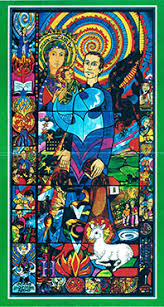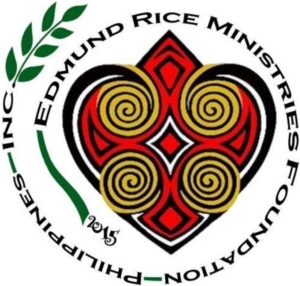Timeline of ERMFPI’s History
Origins:
The Edmund Rice Brothers as a group was approved as an association within the Philippines under the Edmund Rice title rather than their official international name—Congregation of Christian Brothers. Back in March 2006, the Christian Brothers had set-up an office in Negros Occidental to conduct some test runs of services relevant to that particular area and its surrounding provinces. It was a year of deep listening, reflections and understanding of priorities for collective action. A year later, a community began in Hilongos, Leyte; this was transferred to Maasin City, Southern Leyte back in 2010. In 2017, a brothers’ community was established in Cebu City.
Inception:
In June 2010, the Provinces of Oceania and India of the Congregation of Christian Brothers in accord with the Oceania Province’s incorporation as the Edmund Rice Brothers, the Philippines Inc. jointly set up a community of four Brothers in Maasin (two from India and two from Oceania) with a view to carrying out a study in order to understand the pressing concerns of the people. Interviews over 6 months were held with up to 56 representative groups on Leyte Island including Government Departments, province and local level government, civil society, Catholic diocesan commissions, other Christian churches and the Muslim community. The main problem areas identified were the break-down of relationships between high school youth and their parents; lack of livelihood/poverty resulting in children dropping out of schooling due to hunger; and lack of primary ear health care, disability prevention awareness and early intervention services. Through engaging with these communities and deep reflections, three main ministries emerged. These were translated into developmental projects carried out by Edmund Rice Services-Maasin.
The Birth of the Foundation:
ERMFPI was approved by the Securities & Exchange Commission on March 18, 2015, having its head office in Maasin. It became clear to the Christian Brothers in the Philippines and to the Brothers of the Oceania Leadership Team (OLT) that the future of the Edmund Rice Mission should be placed in the hands of Filipinos and should be deeply rooted within the Philippine Society. Following 18 months of generative discussion, the OLT approved the launching of a legal entity within the Philippines separate from Edmund Rice Brothers, the Philippines Inc. This morphed and united the Brothers’ owned Edmund Rice Services of Kabankalan and Maasin into Edmund Rice Ministries Foundation Philippines, Inc. Towards the end of 2016, the Foundation was assessed by the Department of Social Welfare and Development (DSWD) and was granted Registration and Licensing.
Handing over the roles to the laity:
By March 2015, the Brothers had stepped aside from holding key managerial positions in the Maasin Centre in favour of the laity. It was also in this year that the name Edmund Rice Services was changed to Edmund Rice Ministries. This is to emphasize a more developmental approach to its programs as “Services” could mean hand-down while “Ministries” is more of a hand-up; recognizing that it is the people themselves who will ultimately effect changes in their communities.
All hands on deck by Filipino laities, an outreach centre was opened in Bato, Leyte to bring regular support to a wider area. Following Typhoon Haiyan/Yolanda, emergency-response activities related to primary ear and eye health care were also extended to the Archdiocese of Palo. An outreach center geared towards the implementation of developmental projects was also opened in Palo in March, 2017.
Establishment of a Centre in Cebu City:
In order to expand its services, the Christian Brothers along with two (2) social workers conducted a listening survey to the people in selected communities in Cebu City. Together with congregational, university and NGO partners, 2 poor communities (Brgy. Carreta ang Brgy. Tinago) were chosen as pilot areas. In 2019, the Cebu Centre became fully operational where a three-year strategic plan (2020-2023) was developed. Considering the scarcity of resources, the Cebu Centre is being considered as the Hub for generating local resources, building long-term relationships with in-country stakeholders, advocacy engagement, and sustaining ERMFPI’s programs.



